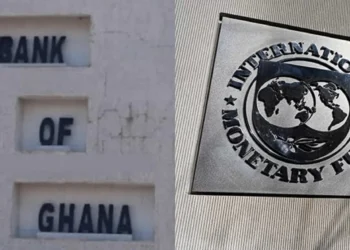The UK is bracing for fresh spending cuts as Chancellor Rachel Reeves prepares to unveil a series of reductions in next week’s budget, fueling fears of a return to austerity.
Reeves is set to present her spring statement on Wednesday, March 26, with the country’s economy facing stagnation and diminished financial flexibility due to borrowing constraints imposed in October 2024. Sources suggest that the chancellor will announce deeper-than-expected cuts to Whitehall budgets, with some government departments facing reductions of up to 7% over the next four years.
While Reeves is expected to hold off on tax increases, the spending cuts aim to balance the books following the Bank of England’s downgraded growth projections for this year.
Ben Zaranko, associate director at the Institute for Fiscal Studies (IFS), warned that these reductions would be the most significant since 2019 and would likely have severe consequences for public services and those dependent on them.
“The government will be hoping that the short-term cash injection provided last year, and efficiency improvements as public services continue to recover from the pandemic, will be enough to deliver service improvements even if money is tight.
“But we’re in a very different world to 2010, and even though the pace of cuts would be substantially slower than in the peak austerity years, it would still represent the steepest cuts since 2019. It is difficult to see how this could be delivered without some adverse impacts on public services and those who rely on them.”
Ben Zaranko
Despite concerns, Chief Secretary to the Treasury Darren Jones dismissed claims that Labour is imposing a new wave of austerity. Speaking at an Institute for Government conference, Jones argued that it would be “factually incorrect” to compare these cuts to Conservative policies after 2010.
“The numbers will be published next Wednesday, but as you saw at the Budget last year, we are increasing public spending, and we’ve increased it quite a lot. We are not factually taking an approach of just blindly cutting spending because we think we should just reduce spending without a plan for how to get there.”
Darren Jones
Austerity refers to government policies aimed at controlling national debt, which Britain adopted following the 2008 financial crisis, leading to sweeping cuts in public services.
Welfare System Overhaul Triggers Debate
The looming budget reductions come just days after Work and Pensions Secretary Liz Kendall announced a £5 billion cut to the welfare system, a move expected to impact around a million people in England and Wales who currently receive disability benefits.
Prime Minister Keir Starmer defended the decision, arguing that the existing welfare system was “morally and economically indefensible.” However, Labour’s longest-serving MP, Diane Abbott, condemned the plan, calling it unjust.
“There is nothing moral about cutting benefits for what may be up to a million people. This is not about morality, this is about the Treasury’s wish to balance the country’s books on the back of the most vulnerable and poor people in this society.”
Diane Abbott

Armed Forces Minister Luke Pollard rejected claims that Labour has shifted toward center-right policies, insisting that the cuts are designed to encourage people back into work rather than fund defense spending.
“We know that there has been a big increase in the number of people out of work, but when we’ve got one in eight young people claiming disability benefit, that is a crisis for our nation. That is why Liz Kendall, the Work and Pensions Secretary, has set out plans to support more disabled people into work.”
Luke Pollard
The budget announcement follows a stark economic outlook from the Bank of England, which recently halved its growth forecast for the UK economy in 2024. The central bank now predicts the economy will expand by just 0.75% this year, down from an earlier estimate of 1.5%.
Moreover, the bank warned of rising unemployment, as businesses grapple with higher taxes and increased wages implemented in the October Budget.
As such, the economic slowdown has heightened concerns that Britain may struggle to maintain public service funding, particularly in the face of significant spending cuts.
READ ALSO: Ghana to Set Debt Ceiling to Strengthen Fiscal Discipline– Ato Forson




















